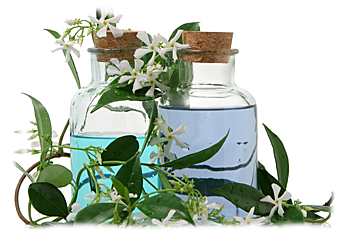
The practice of aromatherapy could be seen as an integral part of the larger field of herbal medicine, since the essential oil is only one of many ways in which a plant can be prepared as a remedy. Since all essential oils are derived from plants, it stands to reason that the two forms of therapy are complementary and not isolated from one another.
In some respects, the word ‘aromatherapy’ can be misleading because it suggests that it is a form of healing which works exclusively through the sense of smell. This is not the case; each essential oil has an individual combination of constituents which interact with the body’s chemistry in a direct manner, which then in turn affects certain organs or systems as a whole.
Essential oils have three distinct modes of action with regard to how they relate with the human body: pharmacological, physiological and psychological.
- The pharmacological effect involves the chemical changes which take place when an essential oil enters the bloodstream and reacts with the hormones and enzymes
- The physiological effect involves the way in which an essential oil affects the systems of the body
- The psychological effect takes place when an essence is inhaled, and an individual responds to its odor.
Although most plants which yield essential oils are also used in medical herbalism, it is important to distinguish the therapeutic qualities of an essential oil from those of the herb taken as a whole or prepared in another manner.
Take peppermint for example: the essential oil is well suited to the treatment of respiratory conditions as an inhalant, due in particular to its antispasmodic and antiseptic properties, however for the longer term treatment of digestive disorders, it is better to use extracts from the whole herb as a tea or infusion.
As a general rule which is in line with the present-day aromatherapy ‘code of practice’, it is best to use essential oils as external remedies only. This is primarily due to the high concentration of the oils and the potential irritation or damage that they can cause to the mucous membranes and delicate stomach lining in undiluted form. There even seems to be some kind of natural order to this scheme, in that volatile oils mix readily with oils and ointments suited to external application, which are absorbed readily through the skin and vaporize easily for inhalation. When inhaled, they can affect an individual’s mood or feelings, and at the same time cause physiological changes in the body.
Herbs, on the other hand, yield up many of their qualities to water and alcohol which are appropriate for internal use but, lacking the concentrated aromatic element, they do not have the same subtle effects on the mind and emotions.
The combination of essential oils and herbal remedies offers a wide and varied range of options for the “home healer”, and when properly informed, they can be utilized safely and effectively.
If you appreciate the information provided,
please help keep this website running. Blessings!
© 2008-2022 aromaworx.ca. All rights reserved.

